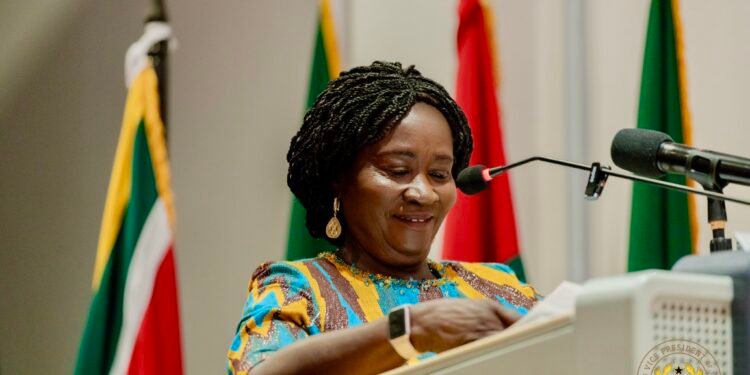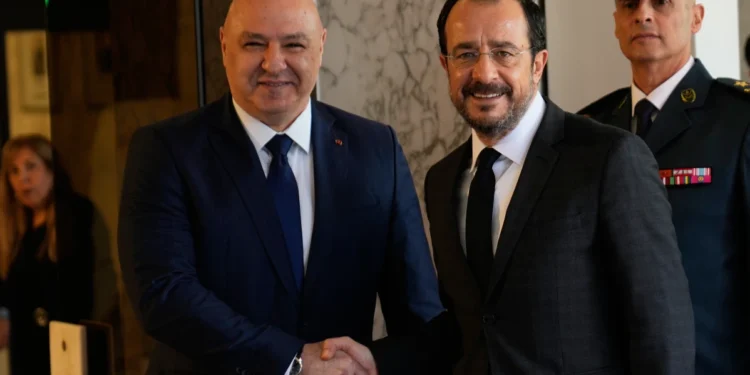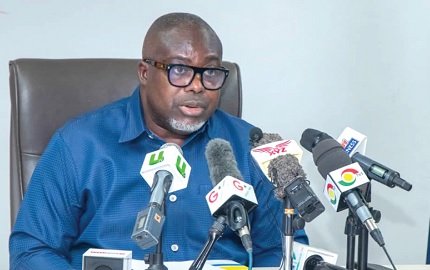Executive Director of the Africa Centre for Energy Policy (ACEP), Benjamin Boakye, has issued a strong warning that government’s intention to assume Springfield Exploration & Production’s (SEP) interest in the West Cape Three Points Block 2 (WCTP2) the Afina discovery could expose Ghana to unnecessary financial risk, given the absence of credible technical and commercial data.
Speaking during an extensive X Space discussion on the theme “WCTP2 Under Review: Technical Truths, Political Pressures & The Future of Ghana’s Oil Governance,” Mr Boakye described the proposed acquisition as “illogical and fiscally dangerous,” arguing that the Afina field does not meet the minimum thresholds required for commercial development.
“It doesn’t make sense for government to even think about taking that much risk when commercial players can be engaged to assume that risk.
“We should wait and make our 75 percent, not pump money we may never recover.”
Benjamin Boakye, ACEP’s Executive Director

Mr Boakye explained that the Afina well’s output potential remains significantly overstated by Springfield when compared with assessments from the Petroleum Commission.
The Commission estimates that the well could produce between 370 and 500 barrels per day, far below the 4,000 barrels per day Springfield has repeatedly claimed.
“The difference between the Commission’s interpretation and Springfield’s report is vast.
“Even with some data gaps, it won’t materially change anything.”
Benjamin Boakye, ACEP’s Executive Director
He added that technical reviews by respected international firms GaffneyCline and McKinsey also fail to support Springfield’s assessment of Afina’s commerciality.
For him, the appropriate step is for Springfield or any potential partner to undertake additional exploratory work to determine whether any part of the block can produce oil at a commercially viable scale.
A state-led acquisition at this stage, he warned, would be based on speculative assumptions rather than grounded technical findings.
Government Urged Not to Absorb Private Risk

The ACEP boss criticised arguments that the state must intervene to protect a local company. He made clear that cushioning private operators with public funds is not the government’s responsibility and should not be justified under the guise of promoting local content.
“There is so much we can pump our money into than coughing up several hundreds of millions of dollars to save a local company.
“The job of government is not to go save people who are losing money.”
Benjamin Boakye, ACEP’s Executive Director
According to him, Ghana simply does not possess the fiscal capacity to absorb such high-risk upstream investments. He pointed to earlier attempts at state-backed ventures which resulted in losses rather than long-term value.
Mr Boakye also criticised the historical use of state funds by the Ghana National Petroleum Corporation (GNPC).
He noted that more than $1.45 billion has been allocated to GNPC over the years to grow into a world-class upstream operator, yet the corporation “didn’t drill even one well.”
He welcomed recent decisions by the Minister of Finance to curtail GNPC’s budget, describing the company as “wasteful” and prone to misuse of unrestricted funds.
Commercial Logic, Not Politics Must Guide Afina’s Future

Mr Boakye insisted that upstream development globally is driven by commercial partnerships and risk-sharing arrangements such as farming-in.
He argued that Springfield should be encouraged to seek alliances with credible commercial operators instead of relying on political channels to offload the asset.
“Data credibility is everything. If the data is credible, commercial players will come.”
Benjamin Boakye, ACEP’s Executive Director
He emphasised that the state already captures significant value from petroleum operations through royalties, taxes, GNPC carried interest and ExploCo shares, amounting to 70–75 percent of project value over its lifetime. According to him, this makes a state-led acquisition unnecessary.
Mr Boakye underscored that civil society’s role is to protect the public purse, warning that decisions around WCTP2 must be scrutinised carefully to prevent avoidable financial exposure.
“We wake up looking at how we can protect the public interest.
“The local champion seeking to benefit from the public purse is not more important than a child going to school without shoes.”
Benjamin Boakye, ACEP’s Executive Director
He concluded that Ghana cannot afford another costly miscalculation in the upstream sector and urged policymakers to allow commercial logic, not political expediency, to dictate the future of the Afina block.
READ ALSO: Agriculture Stakeholders Protest Against Inadequate Budgetary Allocation to Sector























